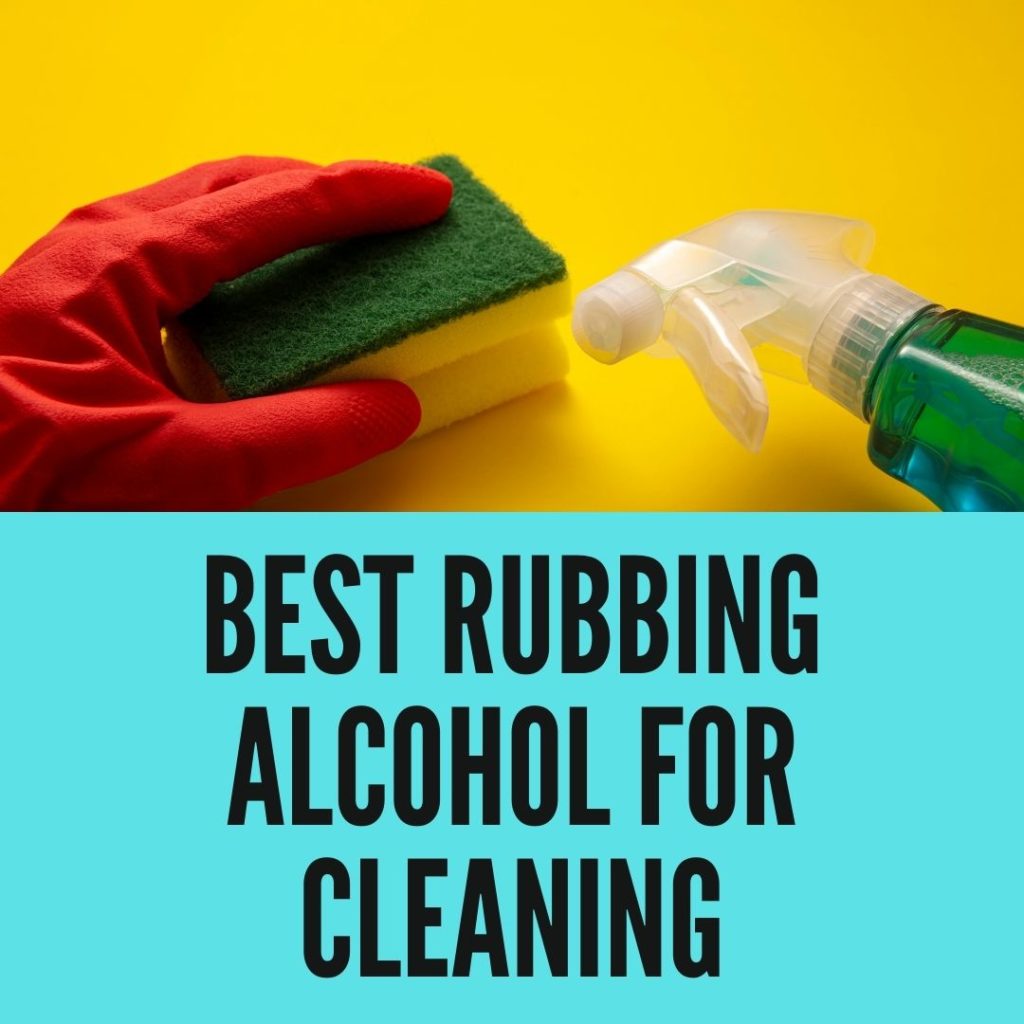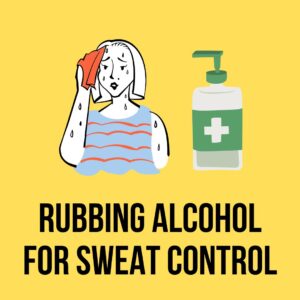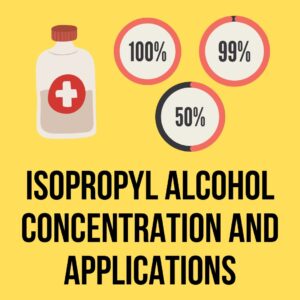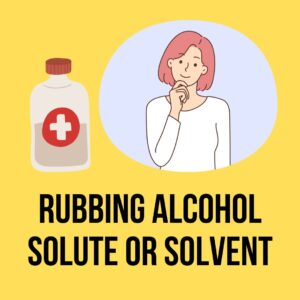If you’re looking to clean or disinfect your house, one of the first things that you may reach for is a bottle of rubbing alcohol. However, have you ever considered the difference between the various types of rubbing alcohol on the market?
So what is the best rubbing alcohol for cleaning? The best rubbing alcohol for cleaning is Isopropyl which is suitable for cleaning up grease and resin, while ethanol is more freely available. Typically, you’ll want to use a low-concentration rubbing alcohol unless you’re cleaning electronics.
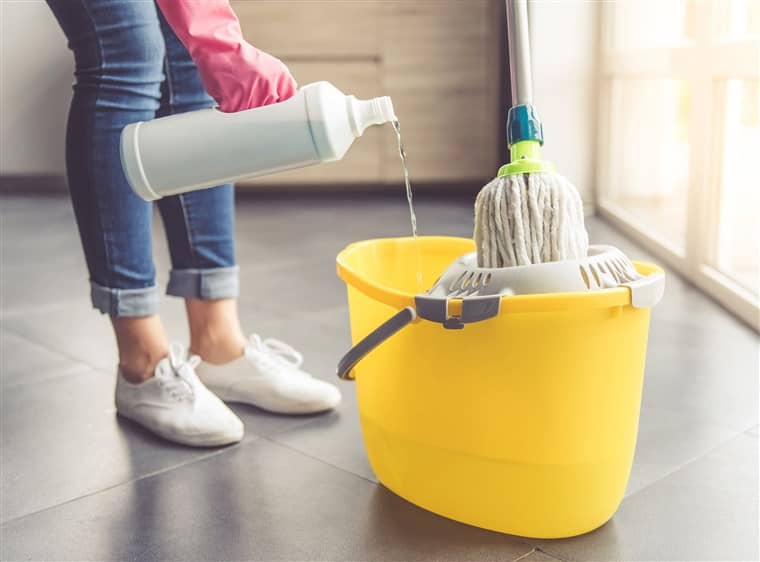
Further down, I’m going to elaborate on the differences between the various types of alcohol and provide some examples of when you should use each of them. I’ll also take a closer look at why you may wish to use lower ABV (alcohol by volume) rubbing alcohol when you’re cleaning your home.
Which Rubbing Alcohol Should I Clean With?
In most cases, you shouldn’t have any trouble cleaning up around the house with either form of alcohol. I’d typically recommend ethyl alcohol or ethanol simply because it’s a lot easier to find than isopropyl alcohol in most pharmacies, and it has the added bonus of being cheaper, in many cases.
Ethanol is an effective disinfectant, making it a good choice if you’re trying to sterilize a surface, especially in the midst of the COVID-19 pandemic.
Both isopropyl and ethanol work against bacteria and other pathogens by dehydrating the cells until they break down. This is similar to how drinking alcohol dehydrates you but on a much more lethal scale, as the rubbing alcohol oversaturates the pathogens and kills them off entirely.
Rubbing Alcohol Percentages and Differences
This is true of both types of alcohol, but that doesn’t mean that they don’t have their differences.
One of the key things to consider when using various types of rubbing alcohol for cleaning is exactly what you’ll be cleaning up. Isopropyl alcohol tends to be a far more effective solvent, which makes it suitable for cleaning up grease or resin stains.
However, just because isopropyl is better at removing grease stains, you may want to pause before using it in the kitchen. This is because ethyl alcohol is considered safer for use in areas where it can potentially be consumed (though it still shouldn’t because of the denaturing process).
Isopropyl alcohol, on the other hand, is inherently dangerous even without being denatured. This means that you should avoid using iso alcohol in any areas where you can expect residue to come into contact or to be consumed by people.
On the other hand, if you’re trying to clean the grease off of mechanical bearings or if you want to clean a piece of glassware that you don’t use to eat or drink out of, isopropyl alcohol will work wonders.
Ethanol, on the other hand, will eventually get the job done when it comes to cleaning grease, but it will take more time and alcohol to do so. This makes both options equally useful for cleaning, but the perfect one depends entirely on the situation.
Price of Rubbing Alcohol
The final thing to consider is the price of each form of rubbing alcohol. Isopropyl rubbing alcohol is in lower demand than ethyl alcohol, meaning that it is more expensive than ethanol, though not to a significant extent.
Regardless, if you go through a lot of rubbing alcohol, the extra money that you’re spending on isopropyl can eventually become a significant amount. Finally, ethanol being more common means that you’ll be able to find it in more stores without having to search around for it.
COVID-19 has put all forms of rubbing alcohol in high demand, and the already sparse supply of isopropyl alcohol has become even more strained, meaning that you’ll be a lot less likely to find it on store shelves. On the other hand, while ethanol supplies are stretched, you’ll still find it in stock more often than iso alcohol.
| Isopropyl alcohol | Best for cleaning grease and resin stains |
| Ethyl alcohol (ethanol) | Best for cleaning areas where the solution may come into contact with people |
Here are some other posts that might interest you:
- Can You Use Rubbing Alcohol To Clean Glass?
- Is Rubbing Alcohol The Same As Hand Sanitizer?
- Isopropyl Alcohol Alternatives For Disinfecting
- How To Make Your Own Rubbing Alcohol At Home
- Different Kinds Of Rubbing Alcohol
Which Concentration of Rubbing Alcohol Should I Use?
By logical deduction, a higher concentration of rubbing alcohol should be more effective when used to clean surfaces, but keep in mind that this isn’t always the case. Once again, the best concentration of rubbing alcohol (iso or ethyl) depends on what you intend to clean.
Since the majority of the remaining percentage of rubbing alcohol consists of water, lower concentrations of alcohol have more water in them. In most cases, 70% rubbing alcohol is a more effective choice than 90% or 99% alcohol because of the water content.
This water permeates the cells of pathogens before the alcohol, essentially creating an easier path through the external cell membrane so that the rubbing alcohol can make it to the nucleus.
In pure rubbing alcohol, the alcohol itself would gradually have to work its way through the cell membrane, which will not allow it to pass through.
Logically, this makes sense, as cells are much more willing to accept water than alcohol. To put it in simpler terms, the water content in lower-concentration rubbing alcohol tricks the cell into letting the lethal alcohol into it.
However, if you’re cleaning electronics with rubbing alcohol, you’ll want to make sure that you use the highest concentration possible. This is because water can potentially damage electronics components whereas rubbing alcohol will eventually evaporate without damaging your machine.
Best Rubbing Alcohol for Hand Sanitizer
While both forms of rubbing alcohol can be used in hand sanitizer, ethanol is often a better choice because of its lower level of toxicity compared to isopropyl alcohol. While you hopefully won’t be ingesting hand sanitizer, there will still be remnants of it on your hands after you sanitize them.
These remnants of alcohol may end up in your food and drink unwittingly, and while ethyl rubbing alcohol is toxic, it is nowhere near as toxic as isopropyl alcohol. Combined with the relative ease of getting your hands on ethanol rubbing alcohol, I’d highly recommend it for any homemade hand sanitizer that you’re creating.

My name is Logan, and I’m a 36-year-old dad who owns a small pressure-washing company in the suburbs of Atlanta, Georgia. My main goal with rubbing-alcohol.com is to show you how versatile isopropyl rubbing alcohol can be! I hope. You find it useful.
We're an affiliate! We may earn a small commission when you make a purchase from product links at no additional cost to you!

